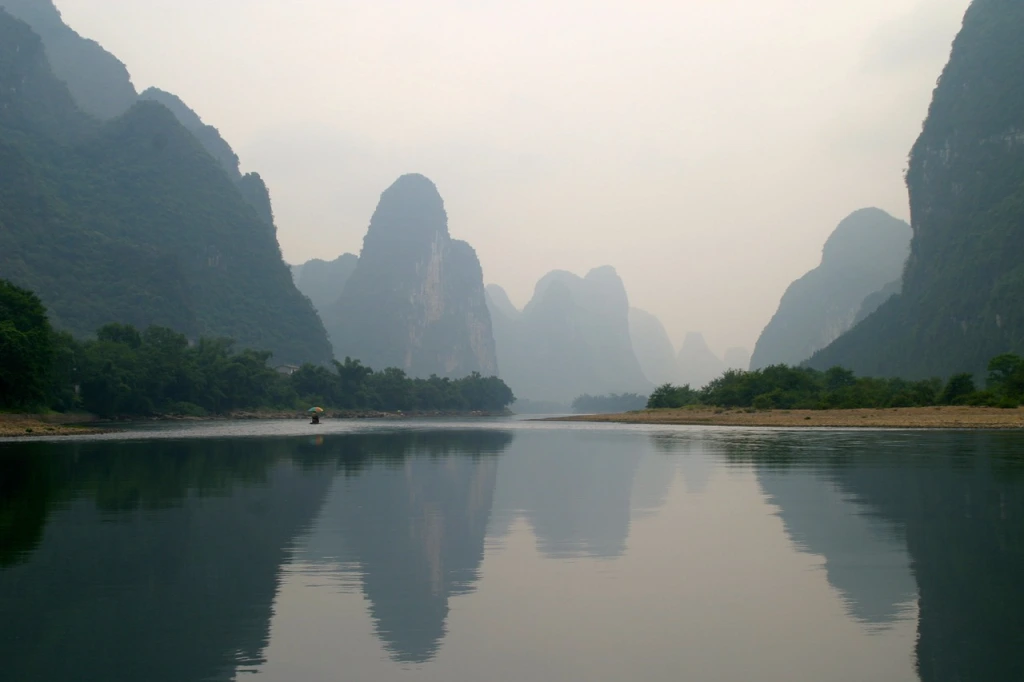A Wilderness View
In the western mountains the snow is white where lies three forts
In the south, the Wanli Bridge crosses the vast Jinjiang River
Oh, the wind and dust keep me from my brothers, and
The edge of heaven ends in tears, as I am so far away
And the future offers only many ills and the stay of the sunset
To the imperial court, I have less use than a speck of dust
Yet, astride my horse I sally forth to the open country
No man can endure the chaos of the world
Setting for Du Fu’s Wilderness View
In the far west, the Tang imperial forces are hard pressed to keep out the Tibetan army. The poet Du Fu, old in years, approaches the three forts that guard China from the invaders. Astride his horse he stops for a moment to gaze at the snow on the western mountains to compose this poem.
The Jin River (Jinjiang) begins in the western province of Sichuan, that boarders Tibet. I can not find a bridge named Wanli on the Jin River and it may be that Du Fu is using the two Chinese characters 萬 and 里, to mean a thousand miles, or a long bridge, rather than as a place name, wan meaning a thousand, and li being a unit of measurement often equated with a mile.
One Chinese frontier city was Songzhou (松州, in modern Sichuan). Phonetically this is similar to chéng shù of the first line, but this interpretation is a stretch. The characters also sound like Chengdu, the capital of Sichuan province.
Alternate translation of line 2: To the south it is clear to where the the Wanli Bridge crosses the vast Jinjiang River. The similarity in structure of the two characters 浦 and 清 is obvious, but the significance is not.
Line four, edge of heaven is often translated in English as the end of the world.
The Style of Du Fu
Du Fu liked to write in a structured poetry of balancing couplets, a style called Lu Shi (律詩). This can be observed in the Pinyin translation below, particularly in the last two lines.
…
kuà mǎ chū jiāo shí jímù
bùkān rénshì rì xiāotiáo
Original Chinese and Pinyin
野 望
西 山 白 雪 三 城 戍
南 浦 清 江 萬 里 橋
海 內 風 塵 諸 弟 隔
天 涯 涕 淚 一 身 遙
唯 將 遲 暮 供 多 病
未 有 涓 埃 答 聖 朝
跨 馬 出 郊 時 極 目
不 堪 人 事 日 蕭 條
Yěwàng
Xīshān báixuě sān chéng shù
nánpǔ qīngjiāng wànlǐ qiáo
hǎinèi fēngchén zhū dì gé
tiānyá tìlèi yīshēn yáo
wéi jiāng chímù gōng duō bìng
wèi yǒu juān āi dá shèng cháo
kuà mǎ chū jiāo shí jímù
bùkān rénshì rì xiāotiáoDu Fu’s Laments from the South
History of Chinese Tibetan Warfare
The history of Chinese warfare with Tibet is beyond my understanding. One source is China’s Golden Age. Another translation of this poem with background material is found in Du Fu’s Laments from the South by David R. McCraw.












